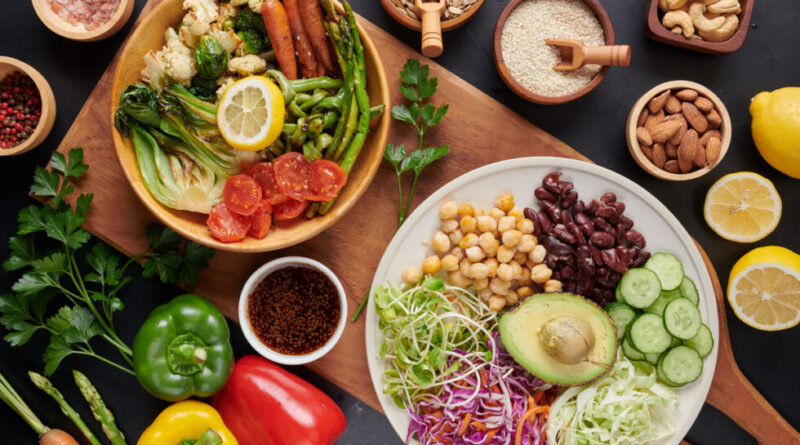Do you even know what veganism is? Find out here!
What is veganism ? Healthy and sustainable food has never been an agenda as addressed as we observe today. Before and after the pandemic, the search for quality of life became a basic premise for a large part of the population.
With this, together with the deepening of the scientific area, we witness more and more approaches focused on food emerging. In the case of nutrition, this was no different, which corroborated with new dietary and lifestyle behaviors, as in the case of veganism!
Were you curious? So stay with us and discover more about this universe!
What is Veganism?
Veganism is a philosophy of life, which involves the way we live, seeking the maximum possible exclusion of any form of involvement (direct or indirect) in exploitation or cruelty to animals.
This is reflected through food, clothing or in any other way, seeking to alternatively promote means of executing these products free of animal traces, in favor of a better life for humans, animals and the environment.
There are different ways to adopt a vegan life, however, what all vegans have in common is their “Plant-Based” diet , characterized by plant-based foods as a whole.
In addition, material derived from animals is excluded , with testing directly on animals or in places, such as zoos, that use animals for entertainment.
Differences between veganism and vegetarianism
As we talked about, veganism involves a very wide range of variables, including food. Some products and their derivatives are strictly prohibited in this lifestyle, such as:
- milk;
- eggs;
- meat.
Soon, the question arises: every vegan is a vegetarian, so would every vegetarian be a vegan?
Not necessarily! Vegetarianism is a food routine (diet) based on eating free of animal traits , however, its modalities may cover specific types of food of animal origin.
The practicing individual can be:
- ovovegetarian : allows only eggs in food;
- ovolactovegetarian : has eggs, milk and derivatives in food;
- lactovegetarian : ingests only milk and derivatives, such as foods of animal origin, in their diet;
- strict vegetarian : those who do not consume any food product or food of animal origin.
Thus, veganism, as a lifestyle, implies a diet free of animal traces , however, a diet free of animal traces does not indicate a lifestyle far from them.
How does a vegan diet work?
A vegan diet boils down to strict vegetarianism, however, don’t be fooled by the word “sums up”.
Veganism encompasses a plant- based diet , that is, with your foods being of plant origin, such as:
- fruits;
- oilseeds;
- grains and cereals;
- leafy vegetables;
- products of plant origin.
This requires that all nutrients and culinary preparations are duly qualitative , with appropriate and adequate amounts for each individual, harmonizing foods with each other and in the context of a certain person’s diet.
Therefore, certain precautions with food in veganism are necessary for a healthy “diet”:
- maintain an examination routine;
- balance the fibers so as not to cause diarrhea or constipation;
- provide a wide range of combinations so that individuals can vary their dishes;
- encouraging self-knowledge within the kitchen and deepening culinary preparations;
- adjust the quality of the proteins, as vegetables do not have all the essential amino acids in sufficient quantities in isolation;
- make sure that the individual ingests the necessary supplementation (B12, B9, creatine and iron, depending on the case) so that the metabolism and the body as a whole work at their maximum power;
- look for a nutritionist in the area to assess your dietary needs and balance your diet to provide good nutrition and achieve the targeted goals.
Tips for becoming vegan
A vegan can emerge overnight, sure. However, there are less aggressive and more sustainable ways to achieve this goal.
Start by doing some research. Know all the factors that veganism involves and read reports from practitioners or members of this lifestyle.
Then choose an attribute to start with . Whether it’s your clothes or beauty products, choose a starting point before covering other areas.
Many people start with food, which can be a determining factor initially and one of the hardest habits to install in the routine.
If you choose to change your food intake directly, look for a niche nutritionist so that the professional can promote adequate nutritional health, given your adaptation goals.
Carrying out this type of transition alone can be extremely dangerous and must be accompanied by an area professional!
As time goes on, add new habits and set goals for each habit you add . Always keep in mind the reason for it all.
Now that you know more about veganism, just pay attention to the precautions and choose where to start.
Consult a nutrition professional for more information and appropriate guidance.
For more interesting articles visit our blog.

